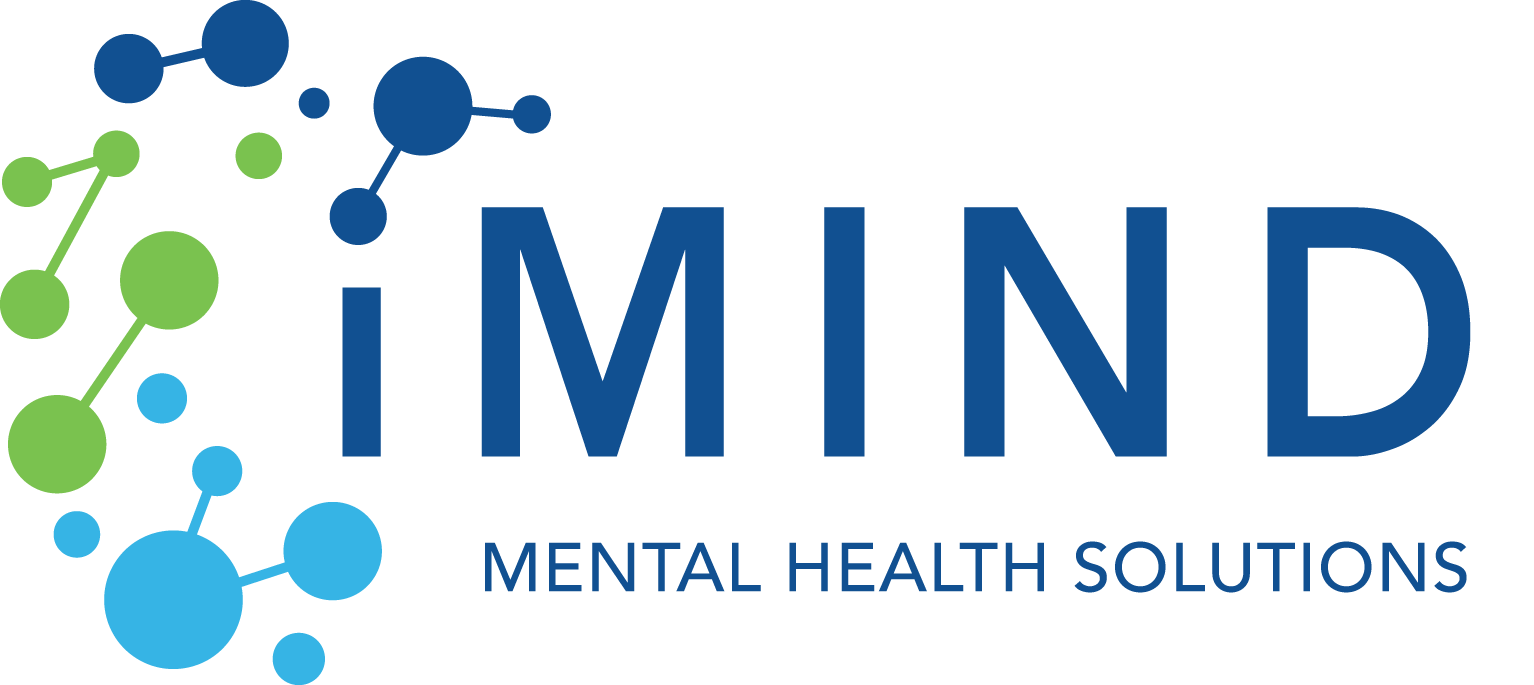The Science of Happiness: 5 Principles of Positive Psychology
Published By Justin Baksh, LMHC, MCAP
October 30, 2023

Are you happy? Is anyone really happy all of the time? While that may be up for debate, it is true that being in a general state of happiness most of the time has its benefits.
Intricately linked to our physical health, happiness reduces the risk of chronic disease, increases life expectancy, and improves immune function. A sound emotional and psychological state can also enhance productivity, relationships, and general life satisfaction.
Simply put, the pursuit of happiness isn’t just a lofty ideal. It is a tangible goal with concrete benefits in multiple dimensions of our lives. Positive psychology can help us get there.
What is Positive Psychology?
Positive psychology is a relatively new – but increasingly influential – branch of psychology that focuses on individual and community strengths that enable people to thrive.
Unlike traditional psychology, which often centers on diagnosing and treating mental illnesses, positive psychology aims to elevate human experiences such as happiness, hope, and resilience. It asks not just how to alleviate suffering, but also how to cultivate the best within us.
While traditional psychology often asks, “What is wrong and how can we fix it?”, positive psychology adds another layer by asking, “What is right and how can we enhance it?” This dual focus allows for a more holistic understanding of mental health, acknowledging not just the absence of illness but the presence of wellness.
The aim is to provide a balanced, evidence-based approach to mental health by incorporating aspects of human potential and accomplishment.
The Genesis of Positive Psychology
“Positive psychology is not remotely intended to replace therapy or pharmacology. So when depressed, anxious, or in panic or post-traumatic stress disorder, I am all for therapies that will work. Positive psychology is another arrow in the quiver of public policy and psychology through which we can raise wellbeing above zero.”
–Martin Seligman, leading authority in the positive psychology field
Positive psychology as a distinct field came to prominence in the late 1990s, largely thanks to the work of psychologists Martin Seligman and Mihaly Csikszentmihalyi.
Prior to this, psychology had been primarily focused on treating mental illness and dysfunction. While this work is undeniably crucial, Seligman and Csikszentmihalyi argued that it was equally important to study the positive aspects of human experience.
Martin Seligman, often dubbed the “father of positive psychology,” took the helm of the American Psychological Association in 1998 and used this platform to champion a shift towards a strength-based approach. This led to an influx of research and interest in topics like happiness, resilience, and well-being.
One of the seminal works in the field is Seligman’s book Authentic Happiness, where he outlined the foundations of positive psychology. His work inspired a new generation of psychologists to explore how humans can lead fulfilling, meaningful lives.
5 Principles of Positive Psychology
Focusing on the positive is the central tenet of positive psychology. In doing so, it explores a wide range of topics, from individual traits like resilience, optimism, and gratitude to more communal aspects such as social connectivity and positive organizational culture. Implementing the five principles of positive psychology that span all these areas of our lives can help us cultivate happiness.
Principle 1: Gratitude
Gratitude involves noticing and being thankful for the positive aspects of life, no matter how big or small. Multiple studies have shown that cultivating gratitude can significantly improve psychological well-being, reduce stress, and even enhance physical health.
How to Cultivate Gratitude
- Keeping a gratitude journal: Writing down what you’re grateful for helps solidify these thoughts, making them more concrete and easier to remember during challenging times. Having a journal is a physical reminder to practice gratitude on a daily basis. You can make it a goal to write down three to five things every morning or evening that you are grateful for.
- Mindfully recognize everyday positives: Actively seeking out and acknowledging the good around you can move your focus away from negativity. This simple change can improve your overall mood. Ask yourself what is going well, what your strengths are, what you have around you that helps you function better in life. When something good happens, whether it is someone letting you into traffic or your child acing a test, acknowledge it. Even in the worst of situations, there is a silver lining.
Principle 2: Optimism
Optimism is an orientation towards viewing challenges and opportunities in a positive light, often expecting successful outcomes even in difficult or uncertain circumstances. It is associated with better mental and physical health outcomes, as well as increased resilience in the face of challenges.
How to Foster Optimism
- Reframing negative thoughts: By challenging pessimistic views and putting a more positive spin on them, you can alter your mindset over time. When you catch yourself in negative self-talk, stop. Replace it with a positive and repeat it over and over. You are retraining your brain to respond positively to the challenges of life.
- Visualizing successful outcomes: Imagining future success can boost your self-confidence and reduce stress, making it easier to tackle obstacles. What does a victory look like? Imagine yourself getting the job, the promotion, the satisfactory resolution of a legal matter. Just a few minutes a day spent doing this will reap big benefits in your life.
Principle 3: Resilience
Resilience is the ability to rebound from difficulties and setbacks. Resilient individuals tend to adapt well to change and maintain high levels of well-being, even in the face of stress.
How to Develop Resilience
- Developing problem-solving skills: Learning how to approach problems methodically can enhance your ability to manage stress and navigate challenges more effectively. Write the problem down, map out the steps to resolution, and tackle each one, one step at a time. Crossing off each step after completion will give you an added sense of accomplishment. You are focusing on what you have done, not what remains undone.
- Establishing strong social support: Connections with friends and family serve as a buffer against stress, providing emotional sustenance that enhances resilience. Call a friend to chat, visit your family or invite the neighbors over for dinner. If your social life has waned, it may take some time, but start to make connections with others. Each one you successfully establish will lighten your load.
Principle 4: Mindfulness
Mindfulness refers to the conscious awareness of one’s immediate experience, marked by openness, curiosity, and a lack of reactivity. It has been shown to reduce symptoms of anxiety and depression and improve overall well-being.
Ways to Practice Mindfulness
- Mindfulness meditation: Engaging in a dedicated time for mindfulness can help improve focus and reduce stress. Practicing mindfulness in simple daily tasks can turn them into calming rituals, helping you become more aware and less reactive to stressors. Focus on the housework or work tasks you are doing without letting your mind roam – no future tripping or stewing on the past allowed.
- Focus on the five: Focus on each of your five senses: What are you seeing right now? What do you hear? Smell? How does the air feel? Is the chair you are sitting on comfortable? If you are eating, what does it taste like? Focusing on input from your five senses will bring you into the present moment.
Principle 5: Social Connections
Relationships and social connections are paramount to human happiness and well-being. Numerous studies in the field of positive psychology underscore the importance of quality relationships for both mental and physical health. Strong social ties have been linked to an array of benefits, including improved mood, greater resilience, and even increased life expectancy.
In his groundbreaking book Social: Why Our Brains Are Wired to Connect, Matthew D. Lieberman delves into the neural basis of our need for social connection. He argues that our brains are fundamentally designed to be social, stating: “Being socially connected is our brain’s lifelong passion. It’s been baked into our operating system for tens of millions of years.”
Investing in meaningful relationships is not just a matter of emotional satisfaction; it has tangible effects on our happiness and is rooted deeply in our evolutionary history. Understanding this can give us a deeper appreciation of the role that relationships play in our pursuit of a fulfilling life.
Ways to Foster Social Connections
- Be there for those who are already there: Most of us have people in their lives already. Whether it’s friends, family, co-workers or neighbors, those people can be a support for you. Remember to pay attention to and spend time building those relationships you already have.
- Be open to new opportunities: Life is not a long to-do list. Yes, we have tasks to complete, but we also have people we encounter along the way. Notice them, acknowledge them, offer a compliment or a greeting. These people may eventually become part of your social network. Don’t ignore or dismiss them.
The Science of Happiness: A Journey Worth Taking
Understanding the science of happiness through the lens of positive psychology offers invaluable insights into how to lead a more fulfilling, emotionally rich life. While happiness is a complex construct influenced by a myriad of factors, the principles of gratitude, optimism, resilience, mindfulness, and the importance of relationships serve as foundational pillars in the pursuit of well-being.
Incorporating these principles into your daily life doesn’t require drastic changes. Often, it’s the small, consistent actions that bring about the most significant transformations. It’s essential to remember that while measuring happiness can provide some gauge of your emotional state, the true value lies in the lived experience of implementing these positive psychology principles.
By embracing this approach to happiness, we not only improve our own wellbeing but also create a ripple effect that positively impacts those around us. As we navigate the complexities of life, adopting the strategies and mindsets offered by positive psychology can serve as a valuable toolkit, guiding us toward a more content, resilient, and fulfilling existence.
- Lieberman, M. D. (2013). Social : Why our brains are wired to connect. Oxford University Press.. (2021).
- Seligman, M. E. P. (2002). Authentic happiness: Using the new positive psychology to realize your potential for lasting fulfilment. Nicholas Brealey Publishing.



